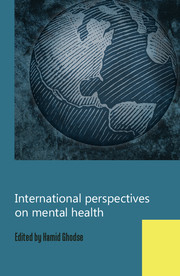Book contents
- Frontmatter
- Contents
- List of contributors
- Preface
- Africa
- Asia
- Afghanistan
- Armenia
- Azerbaijan
- Bahrain
- Bangladesh
- Brunei Darussalam
- Cambodia
- Hong Kong
- India
- Iran
- Iraq
- Israel
- Japan
- Jordan
- Kuwait
- Laos
- Lebanon
- Malaysia
- Mongolia
- Nepal
- Sultanate of Oman
- Pakistan
- The Philippines
- Qatar
- Singapore
- South Korea
- Sri Lanka
- Syrian Arab Republic
- Tajikistan
- Thailand
- Timor-Leste
- Turkey
- United Arab Emirates
- Yemen
- Australasia
- Europe
- North America
- South America
- Index
Brunei Darussalam
from Asia
Published online by Cambridge University Press: 02 January 2018
- Frontmatter
- Contents
- List of contributors
- Preface
- Africa
- Asia
- Afghanistan
- Armenia
- Azerbaijan
- Bahrain
- Bangladesh
- Brunei Darussalam
- Cambodia
- Hong Kong
- India
- Iran
- Iraq
- Israel
- Japan
- Jordan
- Kuwait
- Laos
- Lebanon
- Malaysia
- Mongolia
- Nepal
- Sultanate of Oman
- Pakistan
- The Philippines
- Qatar
- Singapore
- South Korea
- Sri Lanka
- Syrian Arab Republic
- Tajikistan
- Thailand
- Timor-Leste
- Turkey
- United Arab Emirates
- Yemen
- Australasia
- Europe
- North America
- South America
- Index
Summary
Brunei Darussalam occupies a sliver of land on the north-west coast of the island of Borneo with a geographical area of just 5765 km2 (Government of Brunei, 2004). It is divided into the four districts: Brunei-Muara, Temburong, Tutong and Belait. Two-thirds of the land is covered by lush tropical rainforest and the climate is perpetually warm and humid. It is ruled by Sultan Hassan Al-Bolkiah, the head of a dynasty which has governed Brunei for 650 years.
The population of 374 000 (United Nations Population Fund, 2005) enjoys one of the highest standards of living anywhere in the world, thanks to the discovery of oil in 1929, but the economy remains almost entirely dependent on oil and gas. The Bruneian population is 66% ethnic Malay and 15% ethnic Chinese; the rest are a mixture of indigenous and other races, such as the Ibans, who were once the feared headhunters of Borneo. There is also a large population of expatriate workers from the Indian subcontinent, South-East Asia, Australasia and Europe.
Religion and culture
The different cultural groups in Brunei have interesting beliefs about physical and mental health (Kumaraswamy, 2007). These often present a challenge to medical practitioners and psychiatrists in particular. In spite of the official state adoption of Islam, many Malays adhere to beliefs that are a mixture of Islam, misunderstandings of Islam, animism and Hinduism, and this religious stance is a major influence on their beliefs about health. The Chinese and indigenous communities also have their superstitions and forms of traditional medicine.
Unsurprisingly, therefore, the first line of help for any kind of ailment among Bruneians, particularly psychiatric, is the Malay shaman or Bomoh. Bomohs practise a type of folk medicine under the veneer of Islam but their heretical practices are frowned upon by the religious authorities. Their knowledge is passed from generation to generation (Abdul Kadir, 2006) and their treatments include calling upon spirits as well as the prescription of herbs, spells and charms. Three-quarters of all Malay psychiatric patients will have consulted a Bomoh before resorting to mental health services (Salleh, 1989).
Healthcare in Brunei
Brunei has an extensive primary healthcare network, with accessible local clinics in most parts of the country.
- Type
- Chapter
- Information
- International Perspectives on Mental Health , pp. 88 - 91Publisher: Royal College of PsychiatristsPrint publication year: 2011

